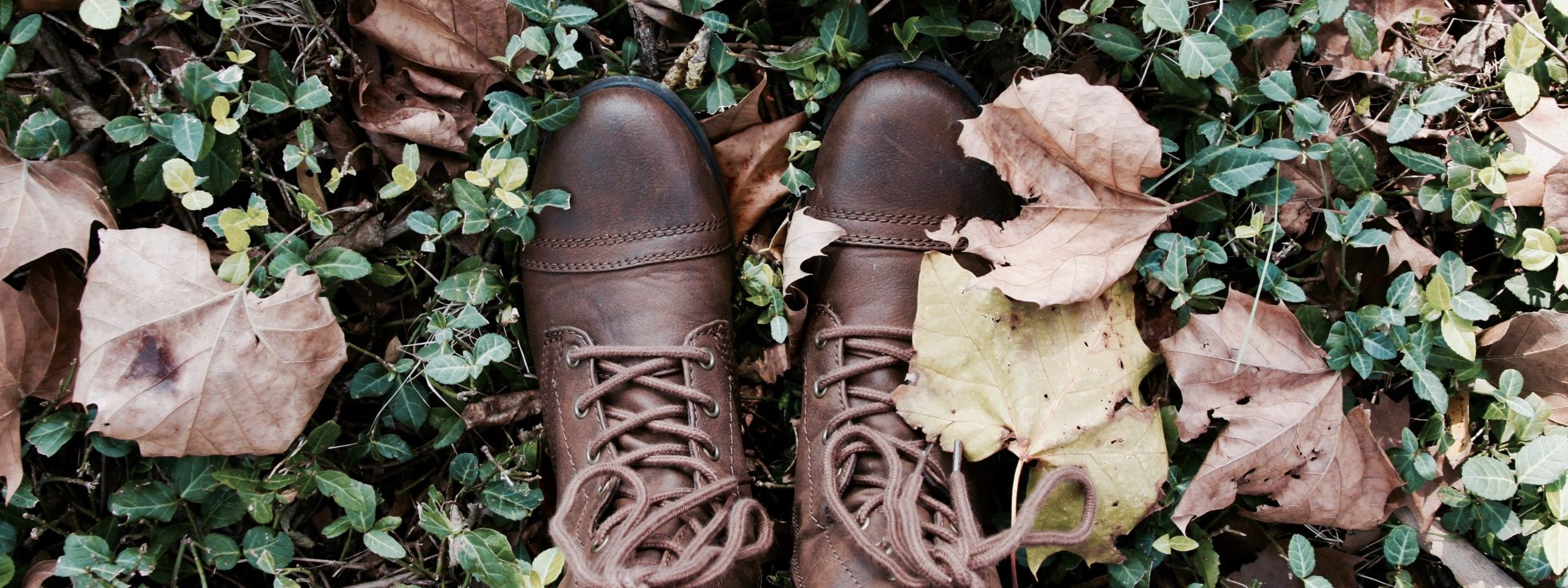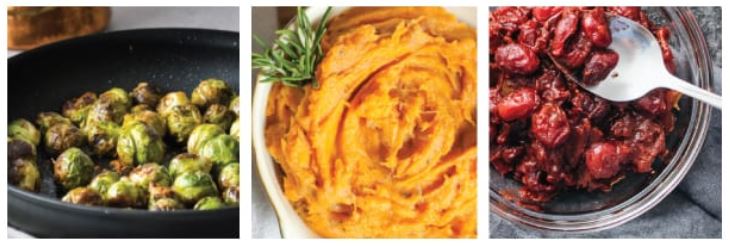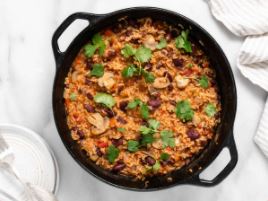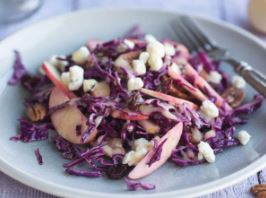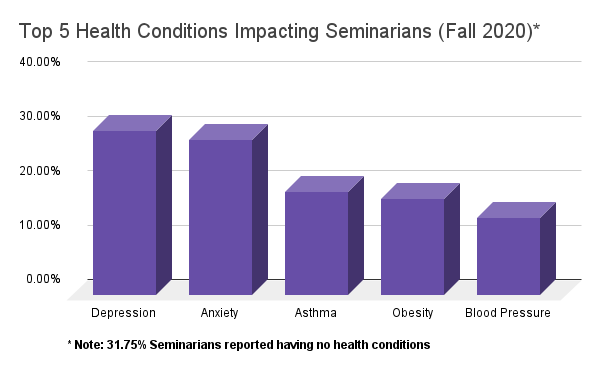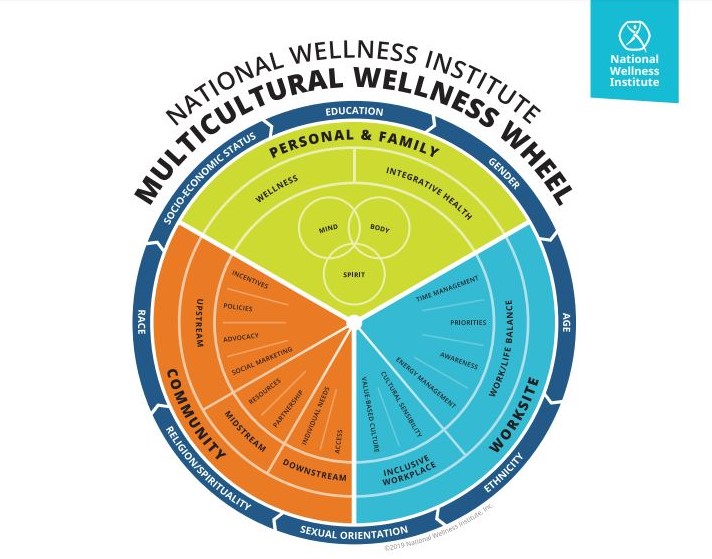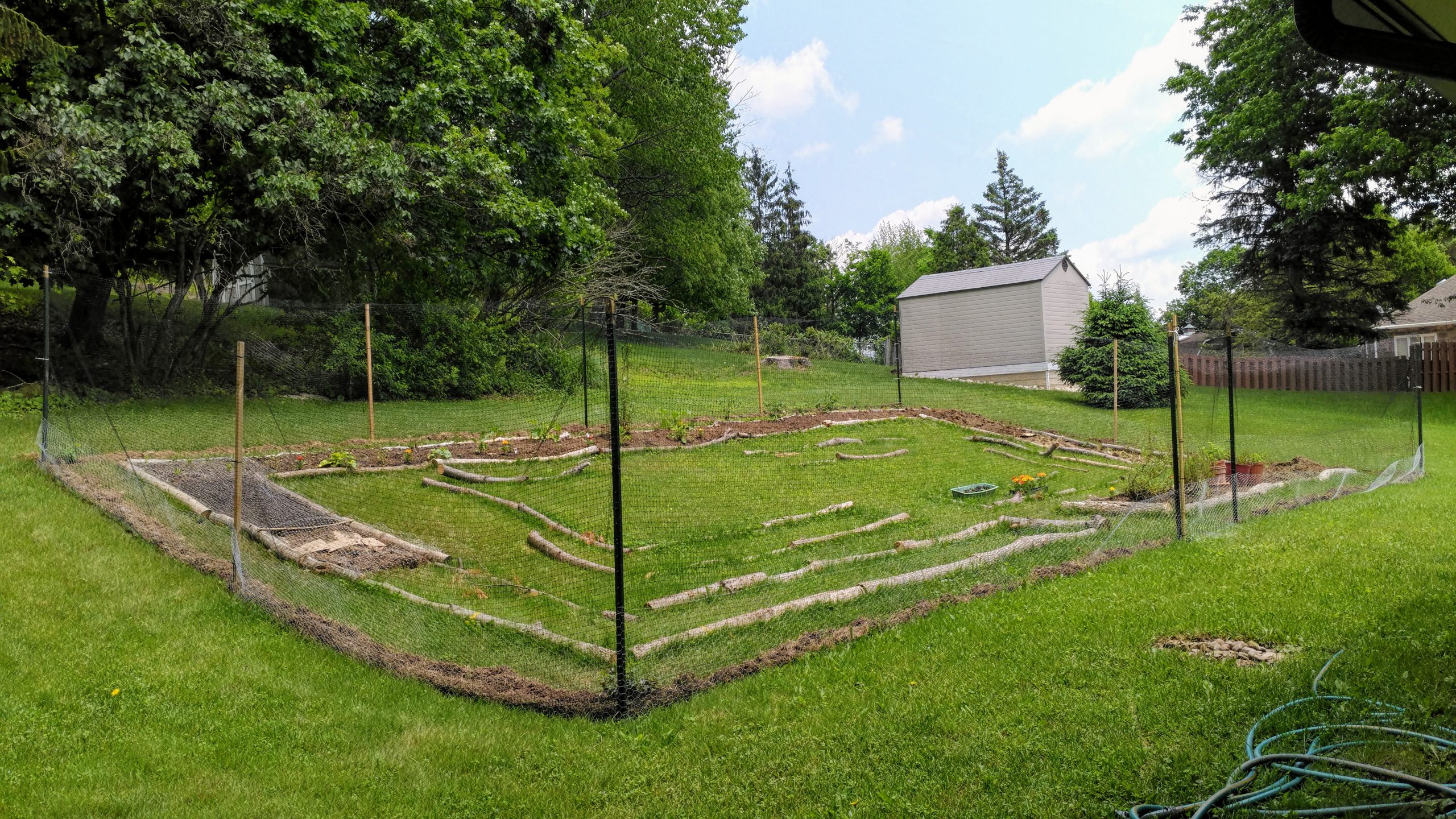Fasting has definitely become a buzzword over the last several years (social media, books, casual conversations, and beyond) and is something that I started gaining an interest in over 10 years ago while I was participating in a spiritual formation program offered jointly through Pittsburgh Theological Seminary and Columbia Theological Seminary. While the current fasting trend is primarily focused on the physical effects of fasting, fasting for one’s overall health has been around for centuries. Since we just finished the Advent and Christmas season, which has traditionally been a season of fasting followed by feasting, and will shortly be entering Lent, also a time of fasting followed by feasting, I thought that this would be an appropriate time to share a few fasting facts to chew on.
- Fasting is commonly understood to mean depriving oneself of food (avoiding certains foods and/or refraining from foods for certain amounts of time) for physical, spiritual, religious, political, and/or other reasons.
-
- The origins of the word “fasting” comes from the French word jeûne, which comes from the Latin verb jejunare, meaning abstinence, not eating as an act of penitence.
- Non-food forms of fasting (from social media, shopping, gossiping, etc.) are not technically considered ‘fasting,’ since they don’t involve food. However, these practices of “abstention” (the act or practice of choosing not to do or have something) still provide many of the benefits that one gets from doing a ‘fast.’
- Fasting is one of the oldest health remedies in history and has been a part of the practice of virtually every culture on earth. It is not just a current weight-loss fad!
-
- The Ancient Greeks thought that fasting led to healing from illnesses and brought about mental clarity. They used fasting to prepare athletes’ bodies for the physical training they were going to endure as they prepared for the Olympic Games.
- Fasting has been a part of most every major religion. Christianity, Judaism, Islam, Buddhism, and Hinduism all incorporate fasting into their practices. A significant exception is Zoroastrianism, which forbids fasting.
- Fasting provides the space to become spiritually nourished. When we empty ourselves of that which distracts us from God (food, consumerism, our busyness, and more), we are better able to experience God’s deep, abiding presence. This enriches our prayer lives and informs how we engage in the world around us.
- Fasting promotes physical restoration in part because one’s body isn’t constantly digesting food. This can lead to many wonderful overall health benefits, such as improvements to glucose regulation, cognitive function, metabolism, and overall heart function, while also reducing inflammation, the effects of aging, and more.
Through the spiritual and physical act of fasting, our lives can be filled in amazing ways!
While I don’t have space here to discuss how fasting fell out of practice among Christians, which I find to be a fascinating topic in and of itself, fasting has virtually disappeared from our modern life (secularly and religiously) for a variety of reasons. I think this is a shame because, at least for me, the discipline of fasting has greatly enriched my life in ways I would never have anticipated.
In this season of new beginnings, and with Lent coming soon, I want to encourage you to consider participating in some sort of fast and/or abstinence practice. I am certainly looking forward to doing so, myself!
Reflection Questions
- What is your attitude toward fasting or self-denial (or, put differently, restraining or limiting one’s own desires or interests, not acting on impulse, postponing gratification)?
- When has self-denial brought you something good?
- Have you fasted? If you have, what was the experience like?
- If you have not, what has kept you from doing so?
- Is God calling you to participate in some sort of fast (food, material goods, etc.) now and/or during Lent?
Peace,
Karen H. Webster
HSHC Co-founder/Executive Director
“Behind every fitting choice of abstinence lies the question, what do I do to excess? What I do to excess reveals my inordinate desires, my compulsions, the attachments that have control over me. They are precisely the areas of my life that need the freeing lordship of Christ rather than my own abysmally ineffective efforts of control. Fasting is not primarily a discipline through which I gain greater control over my life, but one through which God gains access to redirect and heal me in body, mind, and spirit.”
Marjorie J. Thompson, Soul Feast
Want to Learn More? Here are a few resources you may find to be helpful:
The Spiritual Disciple of Fasting
- Spiritual Fasting: A Practice of Mind, Body, & Spirit https://www.healthyhildegard.com/spiritual-fasting/
- I like what this article says about the spiritual discipline of fasting. However, I am not promoting and/or endorsing their healing remedies or products.
- The Most Neglected Spiritual Discipline https://www.relevantmagazine.com/faith/most-neglected-spiritual-discipline/
- Helping Kids Understand the Spiritual Discipline of Fasting https://deeperkidmin.com/helping-kids-understand-the-spiritual-discipline-of-fasting/
- Fasting and Social Justice https://www.jeannettedebeauvoir.com/blog/fasting
Fasting and Physical Health
- 8 Health Benefits of Fasting https://www.healthline.com/nutrition/fasting-benefits
- Intermittent Fasting Explained https://health.clevelandclinic.org/intermittent-fasting-4-different-types-explained/
- NutritionFacts.org https://nutritionfacts.org
- This website provides many insightful videos on a variety of health topics (including fasting).
- Fasting For Weight Loss Infograph https://nutritionfacts.org/2021/07/08/fasting-for-weight-loss-infographic/
- This infograph “compares the advantages and disadvantages of some of the different types of fasting based on the latest evidence and provides some important cautions and notes to consider before deciding to start.”
Christian-Oriented Books That Discuss Fasting
- Bass, Dorothy C. Practicing Our Faith: A Way of Life for a Searching People (Mar. 1, 2019).
- Calhoun, Adele Ahlberg. Spiritual Disciplines Handbook: Practices That Transform Us (Nov. 19, 2015).
- Foster, Richard. Celebration of Discipline: The Path to Spiritual Growth (2018).
- Richards, Jay W. Eat, Fast, Feast: Heal Your Body While Feeding Your Soul – A Christian Guide to Fasting (Jan. 7, 2020).
- Note: I like what the author writes about the spiritual/biblical/historical aspects of fasting. However, the author does promote following a Ketogenic diet, which may be helpful for some individuals, but not everyone. Please check with your healthcare provider if you are interested in pursuing the nutritional plan he suggests.
Thompson, Marjorie J. Soul Feast, Newly Revised Edition: An Invitation to the Christian Spiritual Life (Sept. 26, 2014).
¹ Please note: while I enjoy talking about this subject, I am not an expert in this field. Therefore, please speak with your healthcare provider before engaging in any form of food fasting, especially if you have any underlying health conditions.
² https://www.alimentarium.org/en/knowledge/voluntary-fasting
³ https://www.alimentarium.org/en/knowledge/voluntary-fasting
⁴ https://www.healthline.com/nutrition/fasting-benefits In addition, there is increasing scientific and clinical evidence suggesting that fasting may be a way of addressing a number of health challenges, such as obesity, diabetes, Alzheimer’s, certain auto-immune diseases, cancer, and more. Check out some of the articles listed in the resource section for more information.
Photo by Rachael Gorjestani on Unsplash


